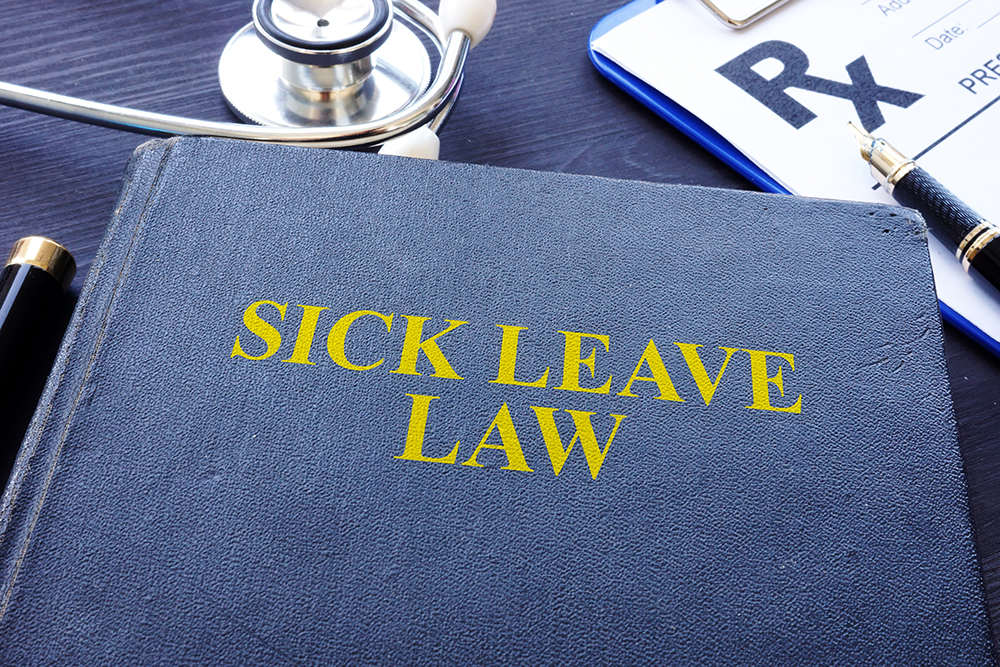Before the COVID-19 pandemic struck, going to work sick was pretty common for many workers, especially those who live paycheck to paycheck. But now that COVID-19 has changed life as we know it, will this trend become a thing of the past?
In response to the pandemic, the federal government implemented a paid sick leave (PSL) mandate when President Donald Trump signed the Families First Coronavirus Response Act (FFCRA) into law. And according to one new study by health economists at Georgia State and Tulane universities, this type of law may be helping to slow the spread of COVID-19.
PSL: Keeping Workers on the Job Since 2007
Since 2007, several state and local governments have enacted laws requiring employers to provide their workers with PSL. Michael Pesko, an associate professor in Georgia State’s Andrew Young School of Policy Studies, and Kevin Callison studied the effects of these staggered mandate adoptions using multiple government-collected survey data sources from 2005 to 2018.
The mandates were effective in increasing the number of workers holding PSL coverage, particularly those in low-wage industries who were unlikely to have previously received PSL benefits from their employers, the researchers found. Women and racial/ethnic minorities benefited disproportionately from the PSL mandates.
“These mandates reduced the number of people attending work while sick, which is similar to an earlier study showing influenza-like disease rates decreased after employees gained access to paid sick leave,” says Pesko in a press release. “If paid sick leave helps stop people from attending work while sick and prevents the spread of disease as a result, this has important policy implications in today’s fight to contain COVID-19.”
PSL reduces the rate of those working while sick by 4.5 percentage points on average for workers in industries with historically low rates of PSL, such as the accommodation and food service industries. PSL mandates are particularly likely to increase work absences among women and households with children, who may be using their benefits to care for a sick child or other family obligations.
“What are the policy implications? The Families First Coronavirus Response Act, which went into effect April 1, is the first congressionally passed bill that provides Paid Sick Leave for employees in medium- and small-sized businesses with coronavirus issues,” Pesko adds. “We believe that the bill will reduce people attending work with COVID-19 because it pays for them to stay home and recover. This bill is, therefore, an important component in COVID-19 containment efforts.”
Could a Federal PSL Law Help Combat Another Pandemic
While the FFCRA is only temporary—the law is in effect until December 31, 2020—it does provide many benefits to workers and employers alike. The FFCRA covers employers with fewer than 500 employees and provides tax credits to reimburse employers for the cost of providing paid leave for the reasons specified in the law. For more information about the FFCRA, click here.
When Congress first discussed this PSL mandate, it was intended to help contain the coronavirus pandemic, but could such measures help prevent future pandemics from even hitting the country? It’s a stretch to say such laws could prevent a pandemic from crossing into the United States, but in the very least, having a universal PSL in place across the country could help protect employees’ health, and as we know, healthy employees are productive employees.
The post Can Paid Sick Leave Laws Help Prevent Another COVID-19-Like Pandemic? appeared first on HR Daily Advisor.
